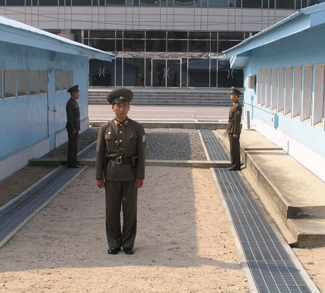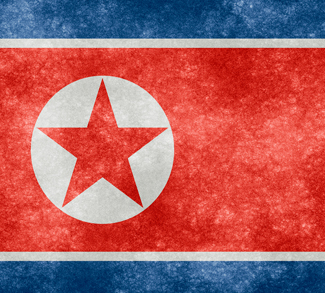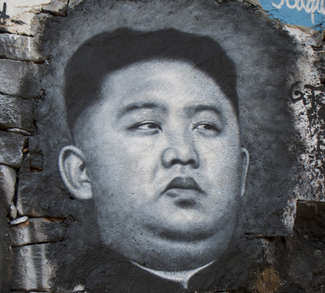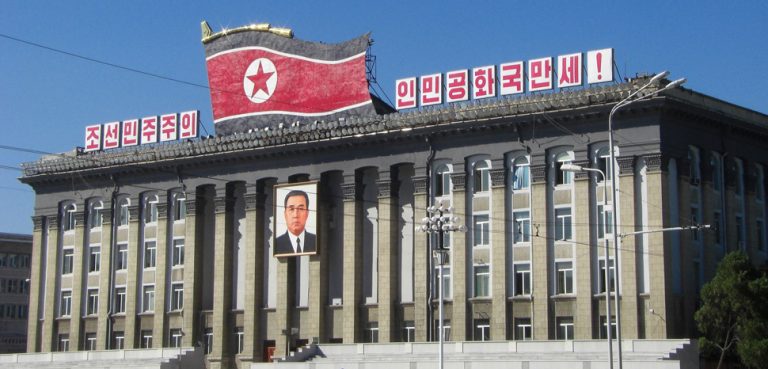In the period following Kim Jong-un’s succession, analysts everywhere were keen to jump on any indication, both real or imagined, that the new regime would drop its international isolation of the past in favor of the seemingly more practical option of economic liberalization. The first year of Kim’s reign provided no shortage of instances where this interpretation had a ring of truth to it: When Kim Jong-un spoke of a need to develop a ‘knowledge economy,’ what he really meant was that economic reform was inevitable; When Vice Marshal Ri Yong-ho was removed from all of his posts in July 2012, it was because he was a staunch traditionalist that stood in the way of these reforms; When Kim Jong-un’s New Year speech struck a conciliatory note towards the South, it represented that the reforms were just around the corner, and so on and so forth.
And who can really blame the media for falling back on this interpretation of North Korean politics? Given the scarcity of quality information coming out of the DPRK and the growing number of international leper-turned-darling economic success stories (most recently Myanmar), it follows that Kim Jong-un would be tempted to seize upon his historical moment and try to pull the North Korean economy out of the mire.
Yet by all indications, this is the last thing that the DPRK government wants to do. Far from it, the government in Pyongyang has been inexplicably ruffling feathers at every possible juncture: testing ICBMs and nuclear bombs, threatening nuclear strikes on US forces, and most recently threatening to tear up the armistice that ended the Korean War.
Though this behavior has some analysts scratching their heads and wondering whether there was ever a kernel of reconciliation in the Kim Jong-un administration to begin with, we shouldn’t be too surprised by what we’re witnessing. After all, we’ve seen it all before.
This kind of chest-pounding brinkmanship from the DPRK has proven to be an effective diplomatic tool for them in the past, as it demonstrates to the US and South Korea that they can only ignore Pyongyang at their own peril. For the Kim Jong-un government, brinkmanship has several benefits, such as the potential for a new round of negotiations, negotiating leverage, and perhaps most importantly, propaganda fodder on the home front for the fledgling Kim Jon-un administration.
Yet so far it seems that things have changed since the days of Kim Jong-il. Back in 2006, all it took for a resumption of six-party talks after an illegal nuclear test was a public apology. But nowadays, the only thing that ripping up agreements and threatening nuclear strikes elicits is indifferent yawns from the opposition. In other words, no one seems to be taking the DPRK’s capacity for peril very seriously anymore, and this time it will probably take a lot more than an apology to bring the six parties back to the negotiating table.
As far as the Kim Jong-un government is concerned, growing international weariness and indifference towards North Korean bellicosity is a problem. Let’s say for the sake of argument that there actually is a reforming urge deep within the heart of Kim Jong-un. If he wanted to act on it, he would need to go about things very carefully. Chipping away at his father’s ideological legacy would inevitably imperil the legitimacy of his own position, to say nothing of the security and wellbeing of countless other bureaucrats and military leaders who live comfortably within the gears of the DPRK state machine. In this context, it would be politically risky for Kim Jong-un to give up too much as a precondition for negotiations, especially given the fact that said negotiations might not lead anywhere.
The opaque nature of North Korean politics means that this article, like many others, is based more on speculation than hard facts. But one should never underestimate the stubbornness with which entrenched bureaucracies can resist change, particularly in closed political systems where these bureaucracies also represent individual power bases. Even in China, now the second largest economy in the world, there was enough opposition to economic opening in 1992 that Deng Xiaoping had to come out of retirement to tour the south of China in support of his own economic reforms.
So while the DPRK’s recent bellicosity doesn’t necessarily suggest that the dream of reform is dead, events on the ground are not encouraging. The US and its allies are tired of hearing DPRK war drums, but the DPRK doesn’t know how to play anything else.
And what happens next might just reverberate through East Asian geopolitics for decades.




